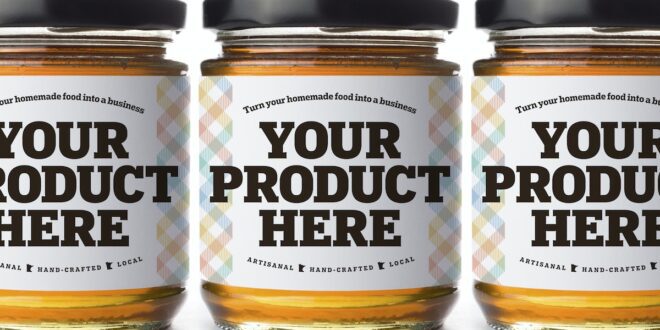Homemade food entrepreneurs in Minnesota are finding new opportunities to start their own businesses thanks to changes made to the state’s cottage food laws. In 2015, Minnesota passed the cottage food law, which allowed homemade food producers to sell their products without needing a food license, as long as their products met safety standards. However, the sales cap for operating as a cottage food producer was limited to just $18,000 per year, making it more like a hobby than a business.
After lobbying from cottage food producers, the law was changed in 2023 to increase the annual sales cap to $78,000 per individual, as well as adding dog and cat treats to the allowed product list, and allowing individuals to be recognized as business entities. The change has given entrepreneurs like Katie Cole, founder of company Fusion Bouzion, a chance to turn her hobby of creating craft cocktail jars into a full-time business.
To become a cottage food producer, individuals must complete a training program depending on the level of registration they require. Tier 1 registrants, with sales of up to $7,665, can complete an online training presentation and exam for free, while Tier 2 registrants, with sales capped at $78,000, must complete an approved safe-food-handling training course. It is recommended that all prospective producers take a course, so they have a better understanding of regulations and safe food handling procedures.
For their products to fall under the cottage food law, they must have a pH of 4.6 or below and/or a water activity of 0.85 or less. To ensure that their products meet the required standards, entrepreneurs may need to have their products tested by a lab.
To start their business, entrepreneurs should consider getting insurance coverage, creating social media accounts and business cards, and marketing their products by taking and sharing pictures. It’s also important to determine the cost per unit before starting their business, taking into account factors such as ingredients, packaging, and labor.
Entrepreneurs can sell their products directly to customers, whether at markets, community events or from home. For the most successful sales, businesses should research potential markets and events and consider factors such as hours, fees, travel costs, and staffing. Cottage food producers should also consider starting small and focusing on a few products that they enjoy making and that are sustainable.
With the change in legislation, the number of cottage food producers in Minnesota has increased dramatically. In 2015, under 500 producers were registered with the Minnesota Department of Agriculture, and last year, over 7,300 producers registered, with 40% being new.
For entrepreneurs like Metallica Walker, who runs Treat Me Too Dog Treats, the future is looking bright. She hopes to own a storefront one day, where dog owners can visit and buy her homemade dog treats. For many entrepreneurs, the chance to turn their passion into a business is a dream come true.
 Mind Uncharted Explore. Discover. Learn.
Mind Uncharted Explore. Discover. Learn.



